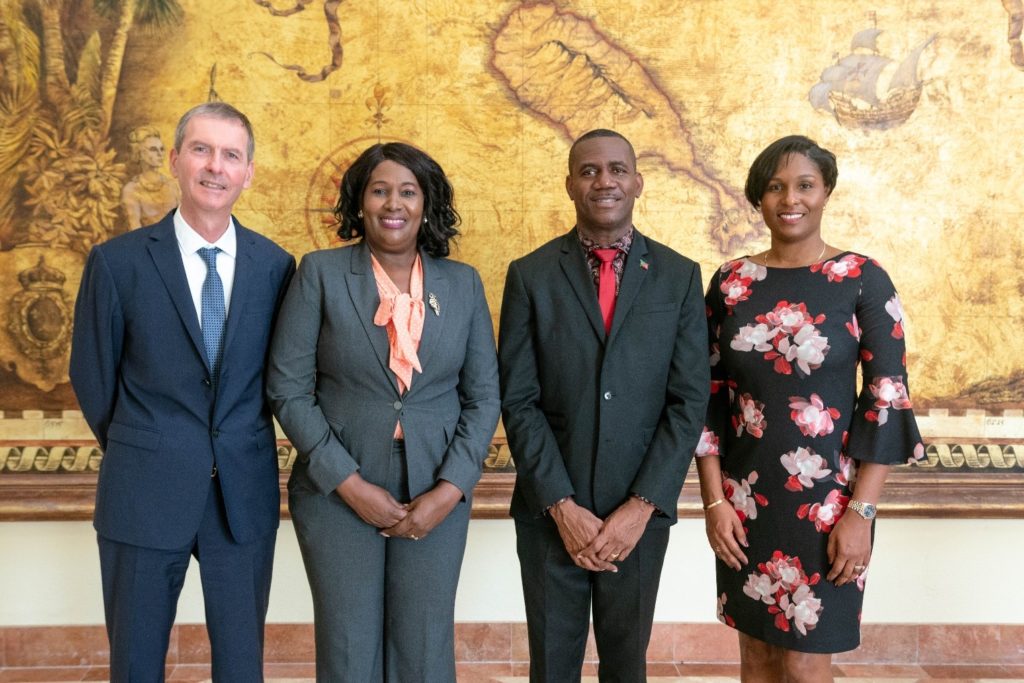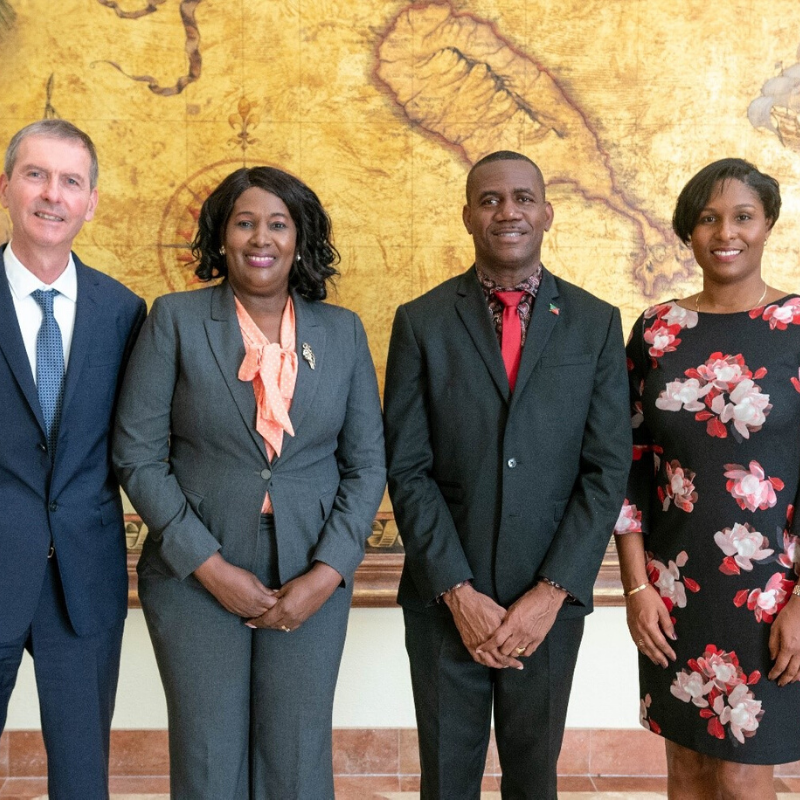Caribbean small island developing states, or SIDs, were exposed to key strategies in attracting and facilitating investment into projects that seek to achieve the sustainable development goals (SDGs), at a recent seminar titled: ‘Facilitating Investment in SDG-Projects’, held in St. Kitts from November 26-28.
The 17 SDGs, adopted in 2015 by the United Nations member states, are strategies focused on peace and prosperity, preservation of oceans and forests, and are also meant to end poverty. These strategies include improving health and education, reducing inequality and spurring economic growth.
Forty delegates attended the regional seminar which covered topics including the strengthening of value chains in the region to support the attainment of the SDGs, the importance of partnerships to achieve the goals, as well as the role of Special Economic Zones and innovative modalities of financing SDG projects. The importance of attracting investment that considers issues such as gender equality and linkages to the domestic economy were also covered, along with the relevance of international investment agreements to the Caribbean.
The seminar was hosted by the Caribbean Export Development Agency (Caribbean Export), secretariat for the Caribbean Association of Investment Promotion Agencies (CAIPA), in collaboration with the United Nations Conference on Trade and Development (UNCTAD), and the St. Kitts Investment Promotion Agency (SKIPA).
Speaking at the opening ceremony, the Deputy Prime Minister of the Federation of St. Kitts and Nevis, the Honourable Shawn Richards, noted that the Caribbean SIDs face significant challenges including vulnerability to exogenous shocks, climate change and the socio-economic impact of brain drain.

“Resilience building must…be our developmental priority as part of a multi-faceted plan that includes climate adaptation and economic diversification†the Deputy Prime Minister noted. He added “It makes sense therefore that the small island developing states of the Caribbean focus on attracting investments that do not increase our vulnerabilities or jeopardize the sustainable use of our natural resources.”
This position was supported by the President of CAIPA, Ms. Tessa Jacques, who indicated that, “It is the intention of CAIPA to play its part in ensuring that our members attract investment that will meet the needs of today, while safeguarding the ability of future Caribbean generations to meet their own needs.â€
“Our Agency has…been at the forefront regionally in creating the partnerships needed to support the achievement of our sustainable development goals as a region†noted Ms. Jasemin Weekes, the St. Kitts and Nevis Board member for Caribbean Export, in reference to the cooperation forged with CAIPA and UNCTAD, among other regional and international agencies. “These relationships have strengthened our capacity to deliver on our mandate as an export and investment promotion agency and will support our achievement of the SDGs as a region.â€
The event was deemed timely by UNCTAD, given the falloff by 32-percent in foreign direct investment (FDI) flows to the Caribbean in 2018 relative to the previous year. Mr. Paul Wessendorp, Chief of the Investment Promotion Section in the Division on Investment and Enterprise at UNCTAD shared the findings of UNCTAD’s 2019 World Investment Report, that FDI in small island developing states “remains fragile and dependent on a few capital-intensive projects…in construction, as well as hotels and tourismâ€. Further, “FDI is the largest source of external finance for developing countries and as such, has the potential to create higher skilled employment, access to technology and international markets and can help achieve the SDGs. It is our aim to offer support to countries, in particular the SIDs given their special vulnerabilities, in the attraction and facilitation of projects that will meet their SDGs. We are particularly pleased to have worked with Caribbean Export and CAIPA in making this event a reality.â€
The 3-day event welcomed 40 key delegates from across the region and saw the signing of a Memorandum of Understanding (MOU) between CAIPA and the Caribbean Agribusiness Association to forge relations to collaborate for the attraction of investment into the high-tech agriculture sector.
The seminar ended with the hosting of the CAIPA Annual General Assembly, which focused the attention of the Caribbean investment promotion agencies on the continued collaboration with UNCTAD, the definition of a CAIPA 2020 work plan and the development of a financial sustainability strategy for the Association.
The event was funded by the European Union under the 11th European Development Fund Regional Private Sector Development Programme and UNCTAD.
Participating countries included: Anguilla, Antigua and Barbuda, Barbados, Belize, Bonaire, the British Virgin Islands, Curaçao, Dominica, the Dominican Republic, Grenada, Guyana, Haiti, Jamaica, Montserrat, St. Kitts and Nevis, Saint Lucia, St. Maarten, St. Vincent and the Grenadines, Trinidad and Tobago and the Turks and Caicos Islands.
